Unit 9 Have you ever been to a museum?Section A 1
文档属性
| 名称 | Unit 9 Have you ever been to a museum?Section A 1 | 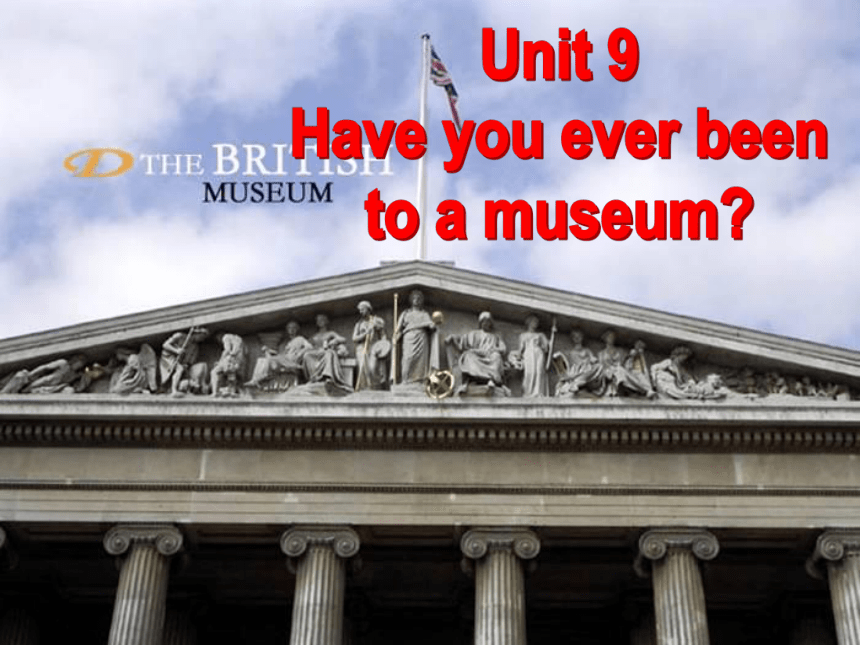 | |
| 格式 | zip | ||
| 文件大小 | 4.3MB | ||
| 资源类型 | 教案 | ||
| 版本资源 | 人教新目标(Go for it)版 | ||
| 科目 | 英语 | ||
| 更新时间 | 2014-05-30 22:35:30 | ||
图片预览

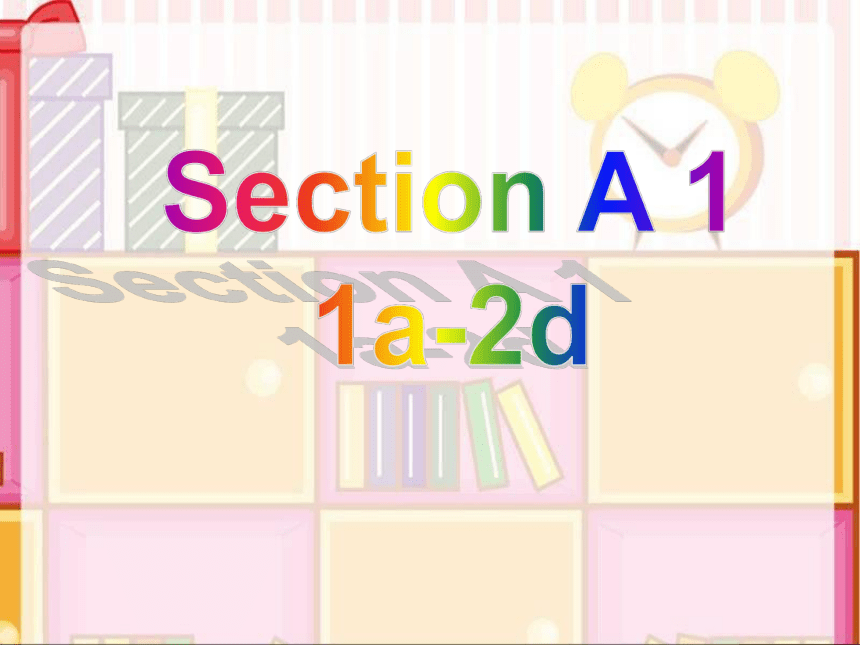
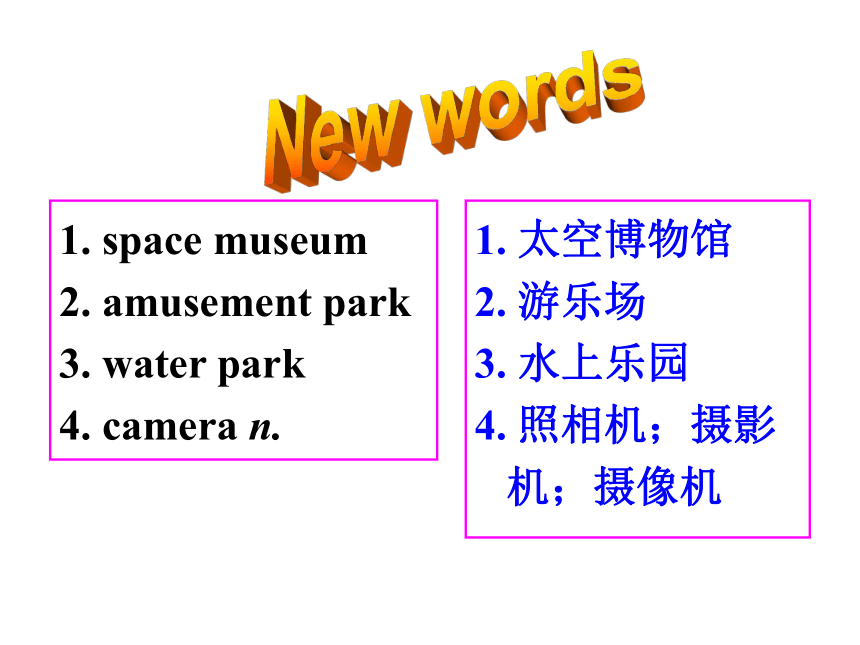
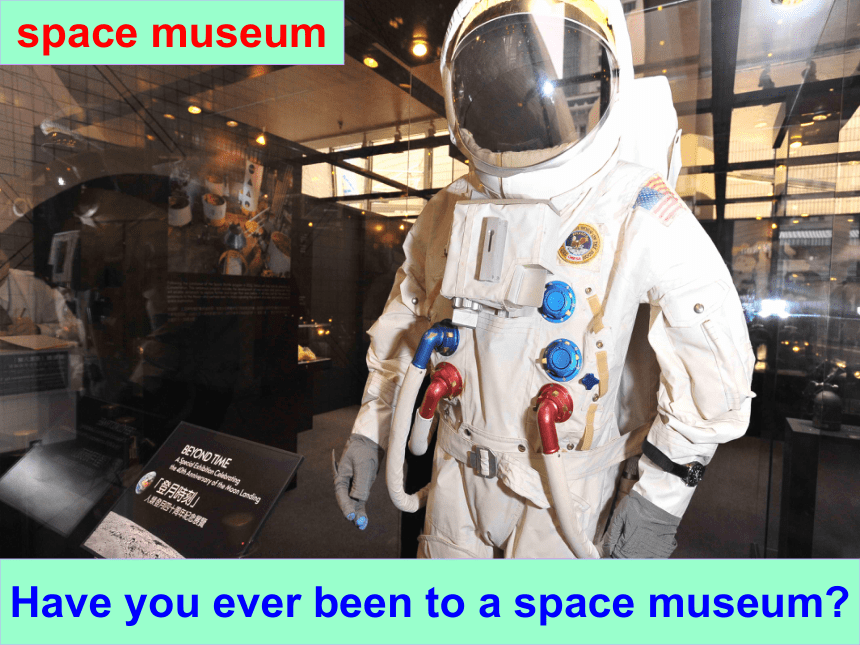
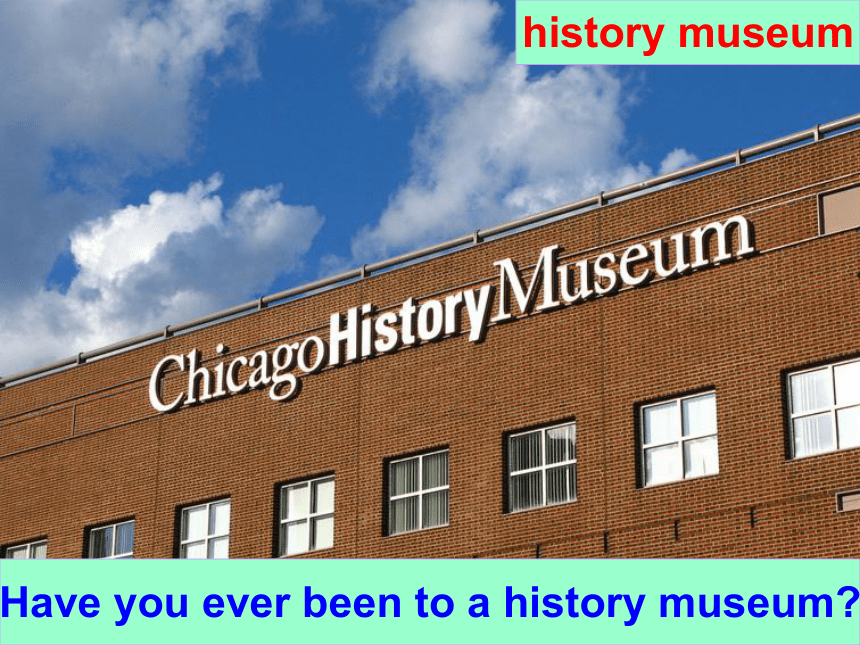
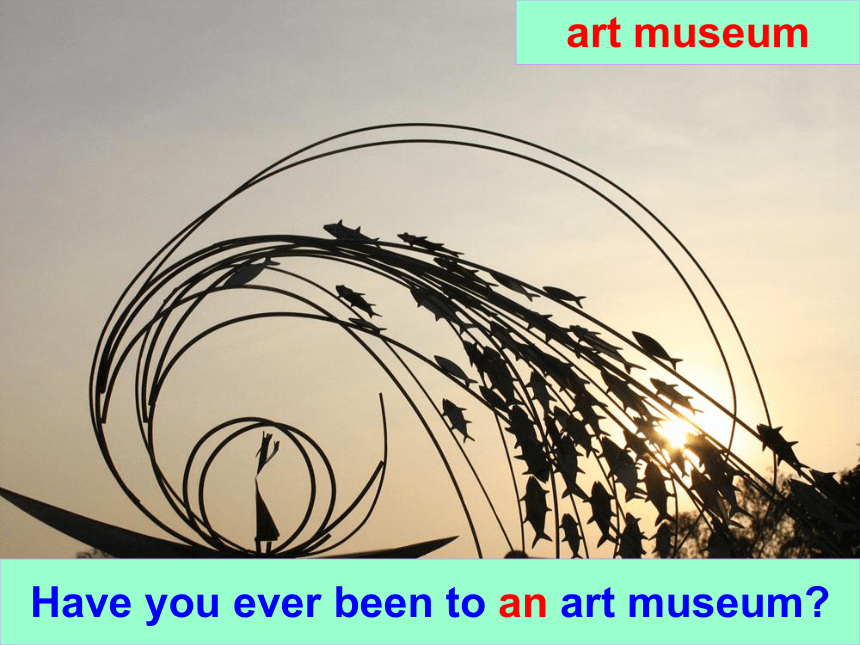
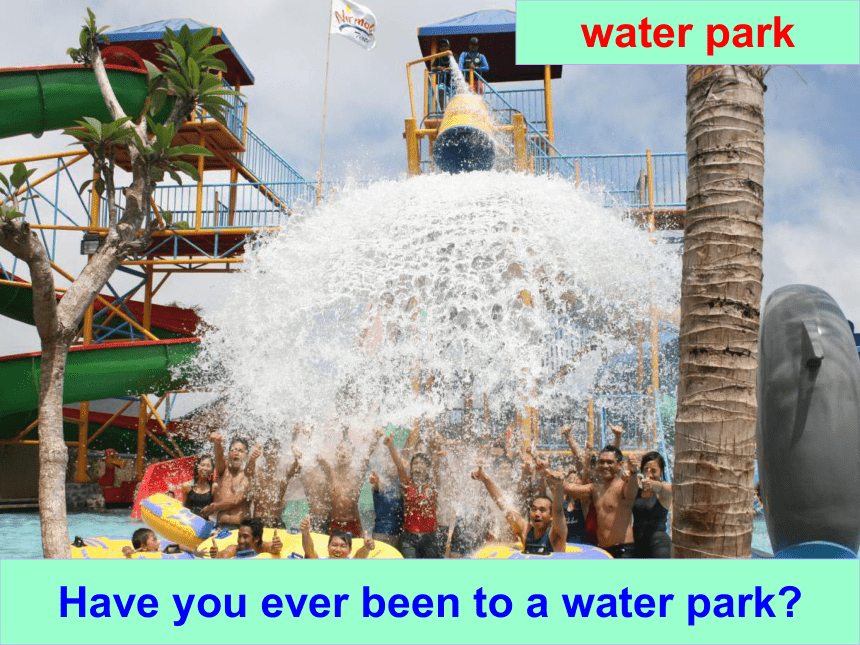
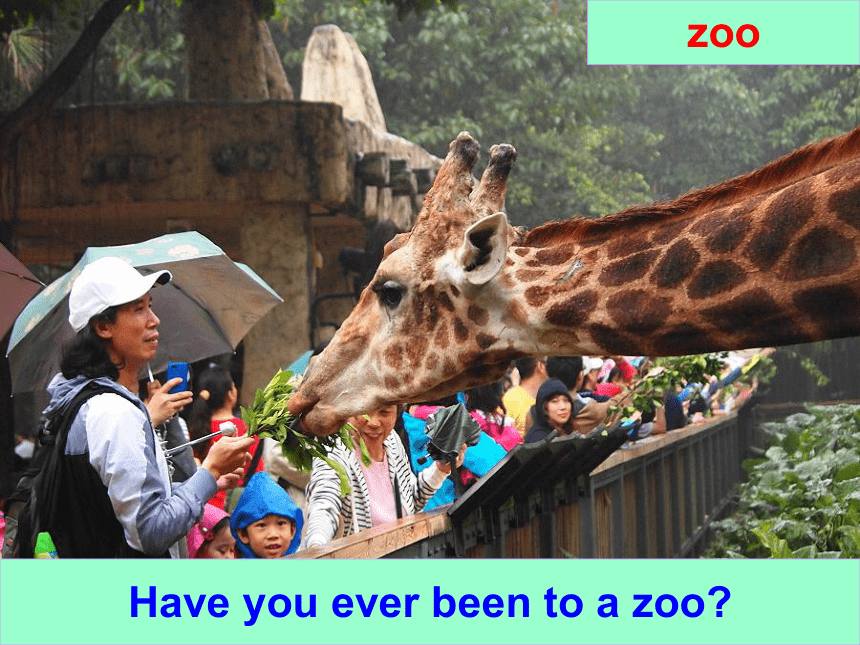
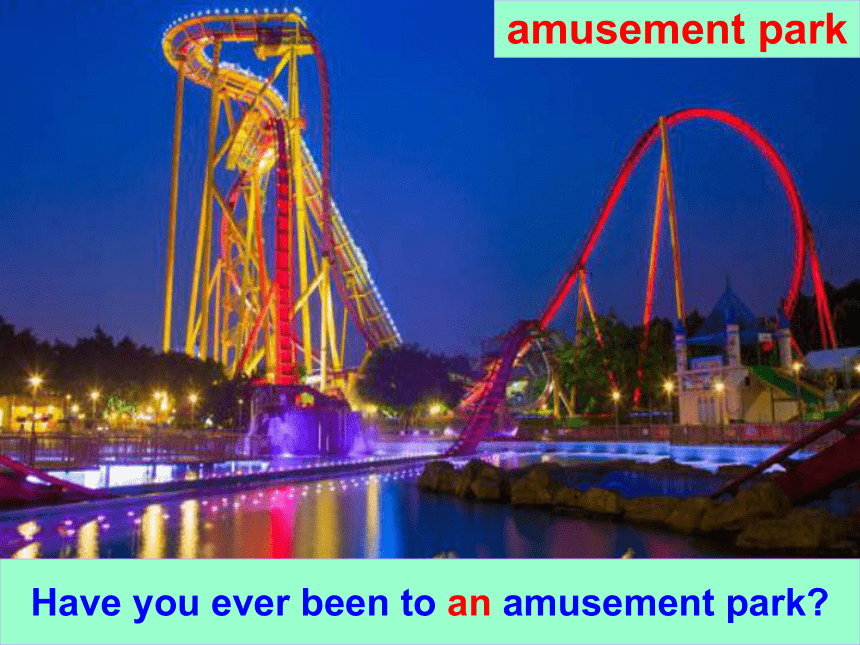
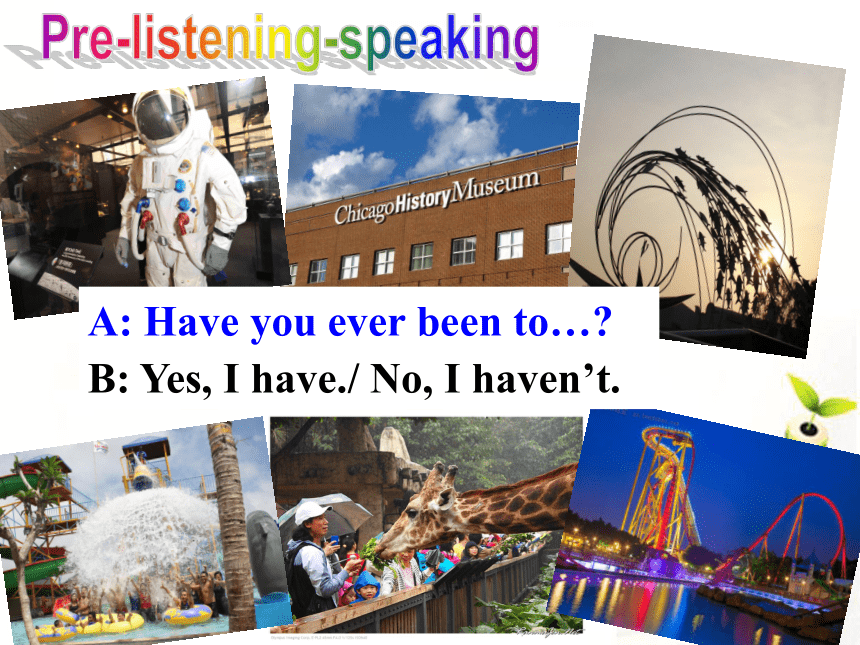
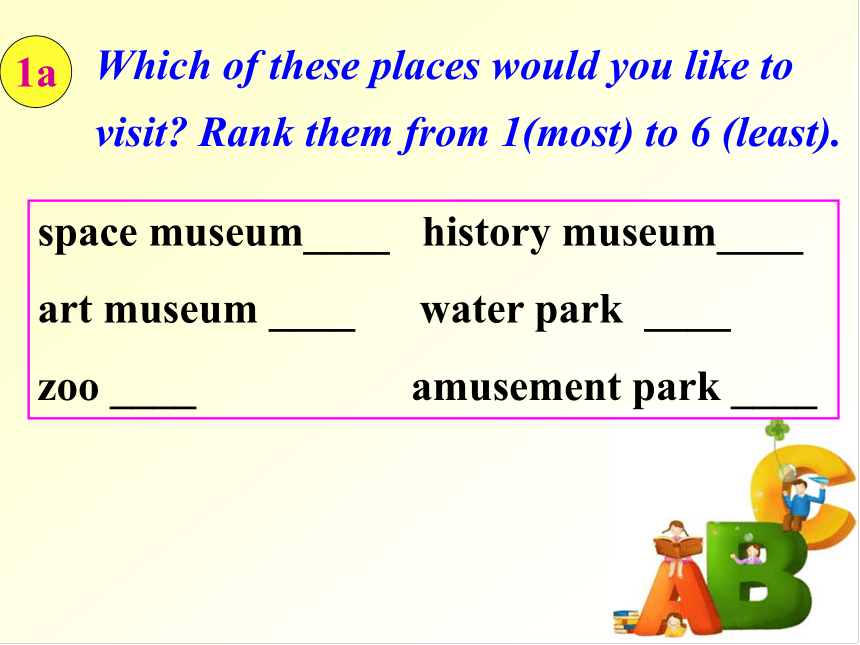
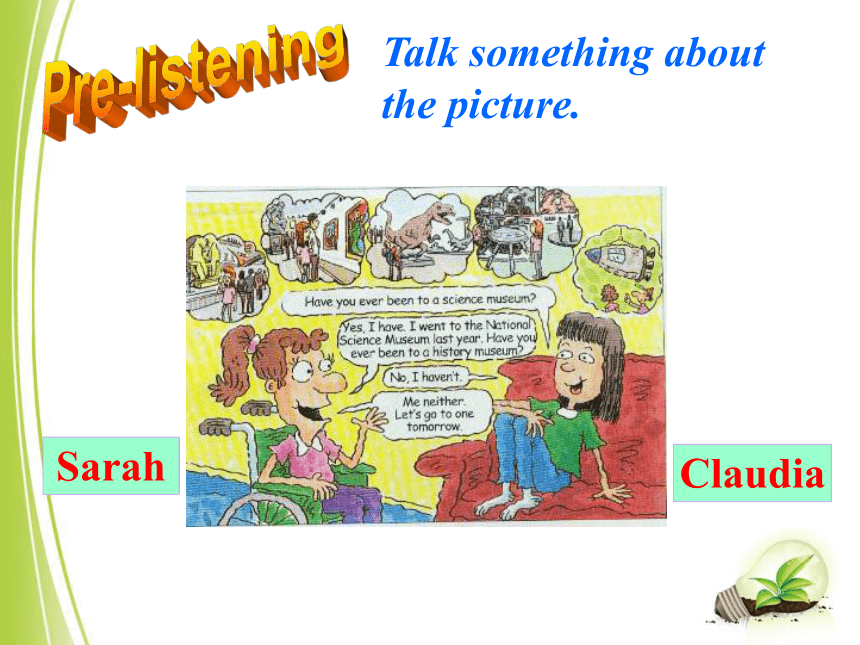
文档简介
课件31张PPT。Unit 9
Have you ever been
to a museum?Section A 1
1a-2d space museum
amusement park
water park
camera n. 太空博物馆
游乐场
水上乐园
照相机;摄影机;摄像机 New wordsspace museumHave you ever been to a space museum?history museumHave you ever been to a history museum?art museumHave you ever been to an art museum?water parkHave you ever been to a water park?zooHave you ever been to a zoo?amusement parkHave you ever been to an amusement park?A: Have you ever been to…?
B: Yes, I have./ No, I haven’t.Pre-listening-speakingWhich of these places would you like to visit? Rank them from 1(most) to 6 (least).1aspace museum____ history museum____
art museum ____ water park ____
zoo ____ amusement park ____SarahClaudiaTalk something about the picture.Pre-listeningChoose the best answer.When did Sarah visit the National Science Museum?
A. Today B. Yesterday C. Last year
2. When did Claudia visit the nature museum?
Last year B. Last summer
C. Last school trip
3. What may the relationship be between the two speakers?
A. Friends B. Teacher and student
C. Mother and kid.Listening 1√√√√√Listening 11bListen. Have these students ever been to these places? Check (√) the boxes.Ask and answer questions about the places in 1b. A: Let’s go somewhere different today.
B: OK. Where do you want to go?
A: Have you ever been to the space
museum?
B: No, I haven’t. How about you?
A: …SpeakingListening 22aLook at the map of the town. Listen and circle the places you hear.Listening 2Listen again and circle T for true or F for false.2bLook at the map in 2a and make conversations about the places.2cA: Have you ever been to the space museum?
B: Yes, I have. How about you?
A: No, I haven’t.
B: Oh, it’s fantastic. Let’s go tomorrow.
A: OK. How are we going to get there?
B: We can take the subway.极好的Speaking2dRole-play the conversation.I went to the film museum last weekend. Have you ever been there? …Yes, I have. I went there back in April. …Language points1. I learned about the inventions that led to color movies, too. 我还了解了一些发明,它们成就了彩色电影。
此处learn是“了解;获知;得知”的意思,由介词about或of引入所获知的具体内容。例如:The children were all shocked to learn of the death of their headmaster.
得知校长去世,孩子们都十分震惊。
I only learned about the accident later. 我只是后来才得知了事故的情况。2. I’ve never been camping.
我从未野营过。
此句为现在完成进行时。这一时态的结构为“have been + 现在分词”,表示从过去某一时刻延续至今的动作。在本句中,说话人使用这一时态来强调自己至今从未有过野营的经历,欠缺这方面的经验。又如:He’s been watching TV all afternoon.
他一下午都在看电视。
We’ve been living like this ever since the birth of my little brother.
自打我小弟弟出生,我们就一直这样生活。 我去过北京两次。
I ______ ______ _____ Beijing twice.
2. 大声读书是一种学习英语的好方法。
Reading aloud __ ____ ____ ____ to learn English.
3. 昨天他没有去那,我也没去。
He didn’t go there yesterday.
_____ _________. have been to a good way to Me neitherExercises4. 我了解了一些电影的知识。
I ______ ______ some information about movie.
5. 他的粗心导致了这次失败。
His carelessness ____ ___ this failure.learned aboutled to 选用have, has填空:
1. I _______ told him the news.
2. She ________ come back from school.
3. You ________ won the game.have has have 按要求改写下列各句:
4. They have bought a computer. (改成否定句)
___________________________________
5. He has lost his book. (先改成一般疑问句,再作肯定与否定回答)
___________________________________
___________________________________They haven’t bought a computer. Has he lost his book? Yes, he has. No, he hasn’t. 1. Practice the dialogue and remember the language points.
2. Preview the next lesson.Homework
Have you ever been
to a museum?Section A 1
1a-2d space museum
amusement park
water park
camera n. 太空博物馆
游乐场
水上乐园
照相机;摄影机;摄像机 New wordsspace museumHave you ever been to a space museum?history museumHave you ever been to a history museum?art museumHave you ever been to an art museum?water parkHave you ever been to a water park?zooHave you ever been to a zoo?amusement parkHave you ever been to an amusement park?A: Have you ever been to…?
B: Yes, I have./ No, I haven’t.Pre-listening-speakingWhich of these places would you like to visit? Rank them from 1(most) to 6 (least).1aspace museum____ history museum____
art museum ____ water park ____
zoo ____ amusement park ____SarahClaudiaTalk something about the picture.Pre-listeningChoose the best answer.When did Sarah visit the National Science Museum?
A. Today B. Yesterday C. Last year
2. When did Claudia visit the nature museum?
Last year B. Last summer
C. Last school trip
3. What may the relationship be between the two speakers?
A. Friends B. Teacher and student
C. Mother and kid.Listening 1√√√√√Listening 11bListen. Have these students ever been to these places? Check (√) the boxes.Ask and answer questions about the places in 1b. A: Let’s go somewhere different today.
B: OK. Where do you want to go?
A: Have you ever been to the space
museum?
B: No, I haven’t. How about you?
A: …SpeakingListening 22aLook at the map of the town. Listen and circle the places you hear.Listening 2Listen again and circle T for true or F for false.2bLook at the map in 2a and make conversations about the places.2cA: Have you ever been to the space museum?
B: Yes, I have. How about you?
A: No, I haven’t.
B: Oh, it’s fantastic. Let’s go tomorrow.
A: OK. How are we going to get there?
B: We can take the subway.极好的Speaking2dRole-play the conversation.I went to the film museum last weekend. Have you ever been there? …Yes, I have. I went there back in April. …Language points1. I learned about the inventions that led to color movies, too. 我还了解了一些发明,它们成就了彩色电影。
此处learn是“了解;获知;得知”的意思,由介词about或of引入所获知的具体内容。例如:The children were all shocked to learn of the death of their headmaster.
得知校长去世,孩子们都十分震惊。
I only learned about the accident later. 我只是后来才得知了事故的情况。2. I’ve never been camping.
我从未野营过。
此句为现在完成进行时。这一时态的结构为“have been + 现在分词”,表示从过去某一时刻延续至今的动作。在本句中,说话人使用这一时态来强调自己至今从未有过野营的经历,欠缺这方面的经验。又如:He’s been watching TV all afternoon.
他一下午都在看电视。
We’ve been living like this ever since the birth of my little brother.
自打我小弟弟出生,我们就一直这样生活。 我去过北京两次。
I ______ ______ _____ Beijing twice.
2. 大声读书是一种学习英语的好方法。
Reading aloud __ ____ ____ ____ to learn English.
3. 昨天他没有去那,我也没去。
He didn’t go there yesterday.
_____ _________. have been to a good way to Me neitherExercises4. 我了解了一些电影的知识。
I ______ ______ some information about movie.
5. 他的粗心导致了这次失败。
His carelessness ____ ___ this failure.learned aboutled to 选用have, has填空:
1. I _______ told him the news.
2. She ________ come back from school.
3. You ________ won the game.have has have 按要求改写下列各句:
4. They have bought a computer. (改成否定句)
___________________________________
5. He has lost his book. (先改成一般疑问句,再作肯定与否定回答)
___________________________________
___________________________________They haven’t bought a computer. Has he lost his book? Yes, he has. No, he hasn’t. 1. Practice the dialogue and remember the language points.
2. Preview the next lesson.Homework
同课章节目录
- Unit 1 What's the matter?
- Section A
- Section B
- Unit 2 I'll help to clean up the city parks.
- Section A
- Section B
- Unit 3 Could you please clean your room?
- Section A
- Section B
- Unit 4 Why don't you talk to your parents?
- Section A
- Section B
- Unit 5 What were you doing when the rainstorm came
- Section A
- Section B
- Review of Units 1-5
- Unit 6 An old man tried to move the mountains.
- Section A
- Section B
- Unit 7 What's the highest mountain in the world?
- Section A
- Section B
- Unit 8 Have you read Treasure Island yet?
- Section A
- Section B
- Unit 9 Have you ever been to a museum?
- Section A
- Section B
- Unit 10 I've had this bike for three years.
- Section A
- Section B
